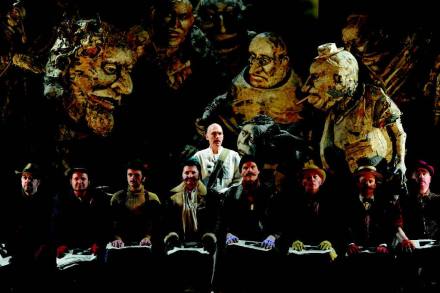Candid camera
A.A. Gill talks to his friend Terry O’Neill, whose iconic photographs captured an entirely new kind of celebrity I remember the first time Terry O’Neill took my photograph: he wore blue; I wore grey and the Great War helmet of the third regiment of Pomeranian Grenadiers. We were at the Imperial War Museum, and the nice curator gave me the tin hat with reverence. ‘They’re surprisingly hard to get hold of in good condition, considering how many were made,’ he said. This one had been lifted from a corpse in Arras. And I can pass on to Spectator readers — because I know how much you love this sort of















